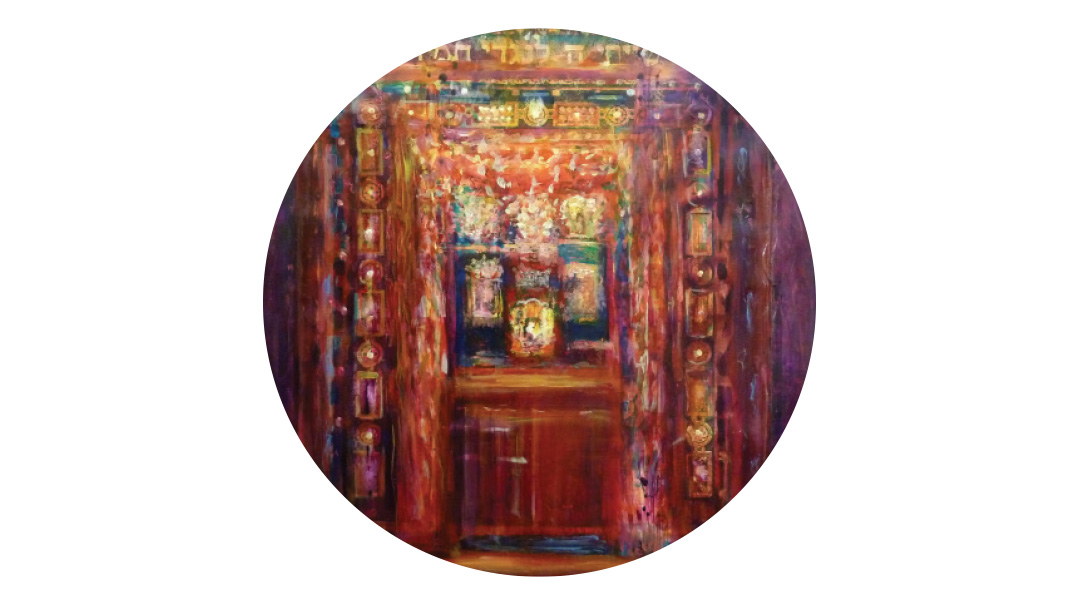A Matter of Mindset

Rav Chaim Kanievsky ztz”l would say that the biggest segulah to be nitzal from din is to really learn what it means to be mevater

ASthe yahrtzeit of Rochel Imeinu approaches, it gives us an opportunity to pause and wonder:
Mamma Rochel. Are we like her? She cried for her children. We cry for ours. She gave up so much for someone else. Do we do that?
To be mevater. To give in.
From the time we’re little, parents and morahs alike try to inculcate this middah in us. In Jewish children’s literature, the hero is always the one who is mevater.
But what does it really mean to be mevater? Does it really involve getting stepped on?
Defining the Concept
In a recent A Better You column (Family First, Issue 859), Dina Schoonmaker briefly discussed this concept. She said: “Sometimes we may find ourselves confused by the difference between the Jewish value of vitur (giving in) and the unhealthy pattern of people-pleasing.” Using the example of gift giving, she defined being mevater as giving something to someone with a full heart. One would never call something a “gift” if it wasn’t given wholeheartedly, if it was given because the person felt coerced into giving it.
The Gemara (Rosh Hashanah 17) discusses someone who is “ma’avir al middosav.” There, Rashi defines this as someone who doesn’t “moded es hamiddos,” measure or tally the incidences of aggravation he experiences at the hands of others. He has the ability to abandon his calculations, v’holech lo, and move on.
This is the mevater.
Getting over something isn’t v’holech lo. Getting over something means we’re still holding on to the hurt and just waiting for it to dissipate on its own with time. Overcoming the need to tally instances of other people’s bad behavior toward us means finding a place in our mind where being territorial or feeling entitled aren’t relevant concepts. V’holech lo means deliberately letting go of whatever negativity we have after an unpleasant encounter with someone.
The opposite of mevater is makpid. To be makpid means, “I keep it and hold on tightly.” Rav Wolbe ztz”l describes it as something we lock away inside of us. It’s the root cause of so many “lovely” feelings: annoyance, irritation, betrayal, feeling taken advantage of, hurt.
The mevater is free. Free to give gifts as she chooses. She doesn’t measure her piece of pie or the lines at the edge of her property. A person who is mevater is happy to offer someone her place in line at the grocery store. A step up from that place can be the person who sees her neighbor accidently ruin the grass in the corner of her lawn as the neighbor backs into her driveway and really means “no big deal” when she says it. (I’m the backer upper, and I thank you, my good neighbor, who’d never want her name printed.)
I’m reminded that Rav Chaim Kanievsky ztz”l would say that the biggest segulah to be nitzal from din is to really learn what it means to be mevater. To be just like Hashem, who is ma’avir al midosav.
Letting Go
I often quote Rabbi YY Jacobson’s profound insight that children would rather be happy than right and adults would rather be right and miserable.
The child in us can let things go — v’holech lo. Children feel and express hurt, jealousy, are stingy, but will easily abandon those feelings for the comfort of love and stability. Can we picture the delight of a young child of five who gets a bag of candies and runs to share with her sisters and brothers? The child who sees someone else getting a hug and squeals in delight for them out of love for those people?
A mevater is someone who judges others favorably. She’s “light-handed” in her “measuring” what others do to her. Or as Rav Wolbe calls it, she has “bedichus hadaas,” a mindset of “bedichus.” Modern Hebrew defines this word as “joking.” Rav Wolbe cautions that this isn’t the good humor of today, which develops comedy based on others’ disgrace or self-deprecation. Bedichus hadaas is a mind not weighted down by calculations. It’s a mind that sees smiles and creates them. This mind has the space to stretch to accommodate others’ foibles and faux pas.
My friend Morah Maya Kuritsky says, “We sometimes stretch so much, we don’t even know that we did.” I heard her recall once reading her daughter’s school project in which she was asked what she admired most about her mother. Her daughter’s answer surprised her. She wrote that, “It was how many guests come to our house each week, and all of them need so many things and different kinds of food,” and her mother catered to all with such finesse. When my friend read what her daughter wrote, she related that she had an “aha moment.” Before that, she hadn’t even realized she did all that!
This is the mevater. She stretches herself and doesn’t even realize it.
Stepping Back
But other times we stretch ourselves too much and can snap!
We must always be wary of snapping. To snap means to find yourself in a place where your movement is inward and protective. We hope that we’re all able to do that in a healthy way.
With our binah yeseirah, we must all know ourselves and have someone objective who knows us who we can turn to when we need counsel. Our hands can be very busy giving, but we can get carpal tunnel in both of them!
The famed Henny Machlis z”l opened her home and heart to 200 people plus every Shabbos of the year. It was well known, though, that on Pesach the family closed their doors and went away for the chag.
Again, we come back to the idea of gift giving. The shoresh of the word matanah, a gift, is the word nosein. Think of open arms, of giving without expecting anything in return.
HaKadosh Baruch Hu is the ultimate “Nosein.” He gives us everything. He is the ultimate Mevater. He is “nosei avon v’over al pesha — He carries our iniquities and overlooks our sins.”
Let’s use the gift of life He has granted us on the Yamim Noraim to keep going in the ways of our Mamma Rochel, to sincerely overlook the little and big aggravations, so we’ll be zocheh to experience the ultimate episode: “V’shavu banim ligvulam,” and there will be peace in the Holy Land.
Rebbetzin Aviva Feiner is the rebbetzin of Far Rockaway’s Congregation Kneseth Israel (The White Shul) as well as a mechaneches in TAG and a visiting lecturer at Stern College.
(Originally featured in Family First, Issue 865)
Oops! We could not locate your form.







